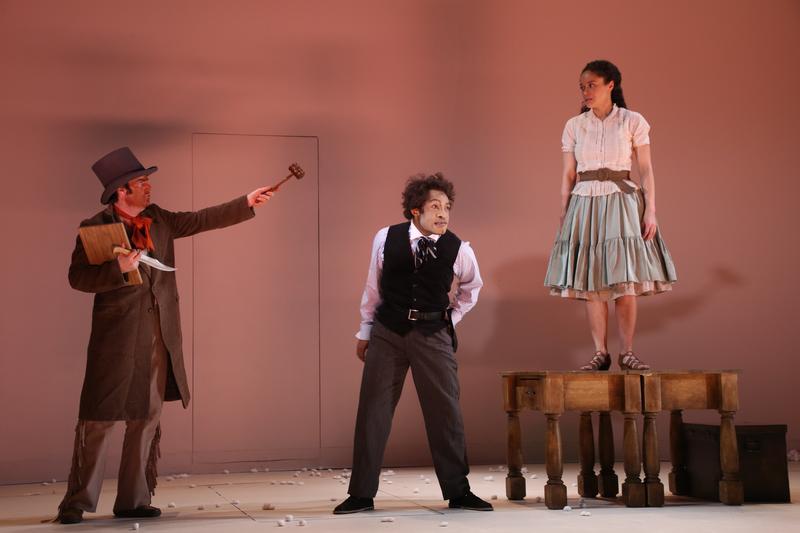
It's tough to describe Branden Jacobs-Jenkins' "An Octoroon" without giving away the surprises that make it a powerful punch of a play.
Let's just say that it's a mash-up of silliness and satire, melodrama and meditation. It takes as its launching pad a 1859 antebellum play by Dion Boucicault that was, at the time, second only in theater popularity to "Uncle Tom's Cabin." Boucicault's work told the story of a young plantation owner who returns from Europe to find that the property was mismanaged. To clear the debt, the plantation's slaves need to be sold — including a young woman he has fallen in love with — because she is an octoroon. That is, one of her great-grandparents was black and a slave. It's a love story and a murder mystery; like CSI, technology plays a crucial role in the plot.
But that's not really what it's about. The black male actors wear white face — and the white actors wear black (or in one case red, for Native American) face. When we watch them smear it on at the very beginning of the play, we become aware that all sorts of racial conventions are about to be upended. And they are.
The story is framed by an actor in his underwear (Austin Smith), playing the playwright, who starts off by telling us about a conversation with his therapist. He makes it clear that he doesn't write plays about race. He's then joined by Boucicault himself (or, Haynes Thigpen, playing Boucicault), who's also in his underwear. They yell at each other and mirror each other's rage. Then they take their places in the antebellum melodrama, complete with evil overseer (also Smith), beautiful love interest (Amber Gray, who imbues her role with enormous dignity), the theft of important papers and a last minute reveal leading to justice. There's also a dancing Indian in full regalia, a giant rabbit, and a stage full of huge cotton balls.
Director Sarah Benson makes all of this sharp and authoritative, grounding the characters in real emotion without squashing any of the surreality of each scene.
Yet it's a very jokey production, making fun of everyone and everything. It lets the audience rest easy in their knowledge that the sort of casual, n-word racism that is portrayed here is a product of a past (and lesser) era. Until one knockout scene. Slavery, we are reminded, is not funny. It was not a joke then and shouldn't be considered one now. And the racism that enabled slavery echoes throughout contemporary life. We are not as far from Bouciccault's era as we may like to think.
